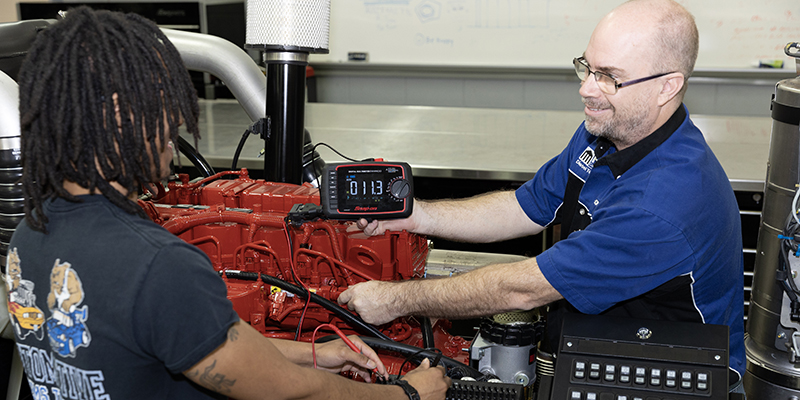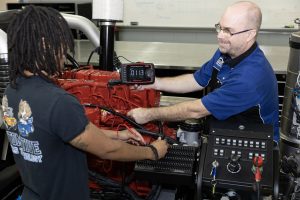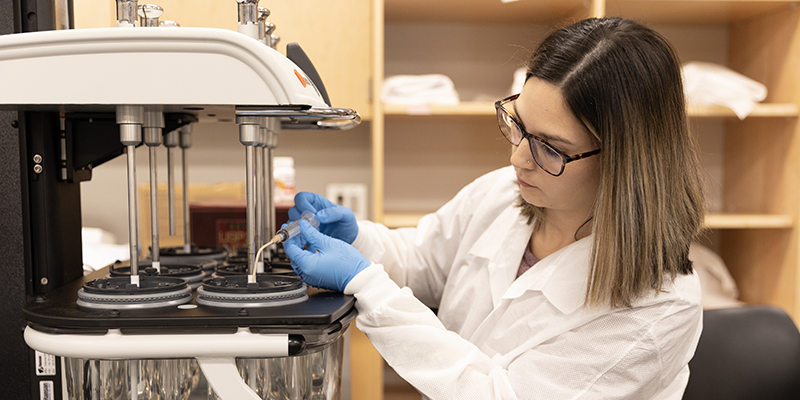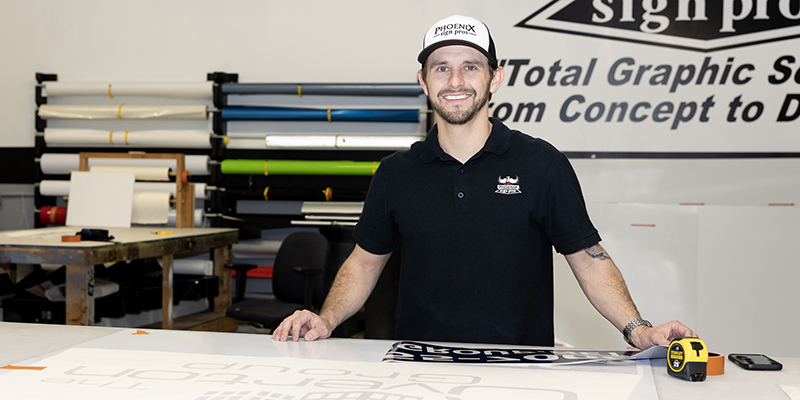
In the fall of 2015, Pitt Community College added a diploma option to its Automotive Systems Technology (AST) program to help meet demand for technicians skilled in the area of light duty diesel engine diagnosis and repair.
The training, according to PCC AST Instructor Brad Clayton, covers light duty diesel fuel systems, air, exhaust and emissions, and testing and diagnosis. He said students who complete the coursework have an advantage when it comes to finding work and commanding a higher salary.
 “The training offered through our light duty diesel program gives graduates an extra avenue toward revenue that non-diesel techs can’t access,” Clayton said. “They have the knowledge to work on gas- and diesel-powered vehicles.”
“The training offered through our light duty diesel program gives graduates an extra avenue toward revenue that non-diesel techs can’t access,” Clayton said. “They have the knowledge to work on gas- and diesel-powered vehicles.”
Clayton, who has 32 years of experience working on diesel engines, says the need for qualified diesel technicians is unprecedented “due to the explosion of diesel-powered vehicles” in the market – everything from small, fuel-efficient sedans up to full-size pickup trucks.
The addition of light duty diesel training was wholeheartedly welcomed by local dealerships, auto repair shops and organizations with significant motor fleets. In fact, Clayton says the City of Greenville “generously donated multiple new diesel engines” to Pitt’s AST program for training purposes.
“Most students dually enroll in the AST program and diesel program at the same time,” Clayton said.
Clayton says the diesel repair industry is rewarding. “A diesel tech can perform repairs on both gas and diesel vehicles,” he says. “The same cannot be said about a gasoline tech, and that alone is motivation enough. When the gas-powered repair jobs dry up and diesel work is piling up, a diesel tech will never be out of a job.”



